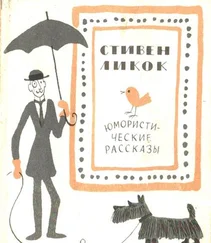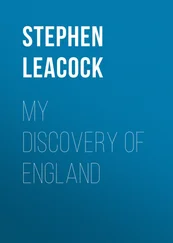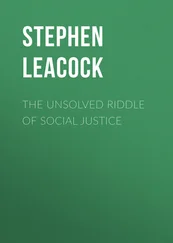Stephen Leigh - Card Sharks
Здесь есть возможность читать онлайн «Stephen Leigh - Card Sharks» весь текст электронной книги совершенно бесплатно (целиком полную версию без сокращений). В некоторых случаях можно слушать аудио, скачать через торрент в формате fb2 и присутствует краткое содержание. Жанр: Фантастика и фэнтези, на английском языке. Описание произведения, (предисловие) а так же отзывы посетителей доступны на портале библиотеки ЛибКат.
- Название:Card Sharks
- Автор:
- Жанр:
- Год:неизвестен
- ISBN:нет данных
- Рейтинг книги:5 / 5. Голосов: 1
-
Избранное:Добавить в избранное
- Отзывы:
-
Ваша оценка:
- 100
- 1
- 2
- 3
- 4
- 5
Card Sharks: краткое содержание, описание и аннотация
Предлагаем к чтению аннотацию, описание, краткое содержание или предисловие (зависит от того, что написал сам автор книги «Card Sharks»). Если вы не нашли необходимую информацию о книге — напишите в комментариях, мы постараемся отыскать её.
Card Sharks — читать онлайн бесплатно полную книгу (весь текст) целиком
Ниже представлен текст книги, разбитый по страницам. Система сохранения места последней прочитанной страницы, позволяет с удобством читать онлайн бесплатно книгу «Card Sharks», без необходимости каждый раз заново искать на чём Вы остановились. Поставьте закладку, и сможете в любой момент перейти на страницу, на которой закончили чтение.
Интервал:
Закладка:
"Most of all, he seemed fascinated by my long sleeps — my dauerschlafen — and the way they pulled me apart and put me back together again. He questioned me about them at great length — how I felt going into them, coming out of them, whether I remembered anything that happened during them, whether I had any dreams while they were in progress. Then he told me about dauerschlaf as a form of therapy, of how his earlier work in Europe had involved the production of prolonged comas in non-wild card patients, by means of drugs and hypnosis, to capitalize on the remarkable recuperative abilities of the body and mind during sleep. He'd apparently gotten some very positive results with this, which was one of the reasons he found my case intriguing. The parallel struck him so forcibly, he said, that he would want to pursue the matter for that reason alone, even if he couldn't do more than adjust my feelings otherwise. But he felt that it could also be the means for doing even more for me."
Croyd finished his beer, fetched a second bottle and opened it.
"Mr. Crenson," Hannah Davis stated, and he met her eyes, "your tail seems to have developed wandering hands."
"Sorry," he said. "Sometimes it has a mind of its own."
The tiger-striped appendage emerged from beneath the table to lash behind him. Croyd took a drink.
"So the man represented himself as being able to cure your wild card condition?" she said.
"No," Croyd replied. "He never said that he could cure it. What he proposed later was something different — a rather ingenious-sounding way of stabilizing it in a fashion that I'd no longer need to fear going to sleep."
"Of course he was a fraud," she said. "He took your money and he got your hopes up and then he couldn't deliver. Right?"
"Wrong," Croyd said. "He knew what he was talking about, and he was able to deliver. That wasn't the problem."
"Wait a minute," she said. "It would have made world headlines if someone had found a way to mitigate wild card effects. Tachyon would've picked up on it and been distributing it on street corners. If it worked, how come no one ever heard about it?"
Croyd raised his hand, and his tail.
"Bear with me. If it were simpler, I'd be done talking," he said. "Excuse me."
He was gone. A man-sized form flashed past the bar at the corner of her seeing. She heard a door open and close. When she looked toward the sound, there was no one in sight. A moment later, however, a shadow flashed by and Croyd was seated before her again, sipping his beer.
"Rapid metabolism," he explained.
"Pan Rudo," he continued then, as if there had been no interruption, "seemed quite taken with my story. I talked all afternoon, and he took pages and pages of notes. Every now and then he'd ask me a question. Later, Mrs. Weiler knocked on the door and told him it was quitting time and asked whether he wanted her to lock the office door when she left. He said no, he'd do it in a few minutes. Then he offered to take me to dinner and I took him up on it.
"We went out then and had a few steaks — he was surprised at my metabolism, too — and we continued to talk through dinner. Afterwards, we went to his apartment — a very nice pad — and talked some more, until fairly late. He'd learned my story by then, and a lot of other things I don't usually talk about, too."
"What do you mean?" she asked.
"Well," Croyd said, "then, and in the days that followed, he told me about some of the more popular psychological theories. He'd even known the people who'd developed them. He'd studied with Freud for a while, and later at the Jungian Institute in Switzerland at the same time he was doing dauerschlaf research there. He told me about Freud's ideas on infantile sexuality, stages of development, sublimation, about ids and egos and superegos. And about Adler's drive to power and Rank's birth trauma. He talked about Jung's personality types and his theory of individuation. He said he felt that they all had something to them, some more for some people than others, or at different times in a person's life. He said that he was more interested in the final forms that these things took, in the emotional constructions they led to for a person's dealing with life. He felt that life is a compromise between what you want and what you get, and that there's always fear involved in the transaction — and it doesn't matter which of all the classical sources it springs from, it's just something that's always there. He said that we tell ourselves lies in order to deal with it — lies about the world, lies about ourselves. He had this idea, actually, from the playwright Ibsen, who called the big one — the big phony construct about yourself and the world — a 'life lie.' Rudo felt that everybody has one of these, and that it was just a matter of the degree of its falseness that made the difference between psychosis and neurosis. He told me that his whole approach to problems that weren't organic involved finding out a person's life lie and manipulating it so the patient can come to better terms with reality. Not to get rid of it. He said that some kind of life lie is necessary. Break it or tamper too deeply and you damage the personality, maybe drive the person completely nuts. He looked on therapy as a means of economizing the lie for better accommodation to the world."
Croyd paused for a drink.
"It sounds very manipulative," Hannah said, "and it seems as if it puts the therapist in a kind of godlike position. You help this guy find the key to your personality, then he goes in, looks around, and decides what to throw away, what to keep, what to remodel."
"Yeah, I guess it does, Croyd said, "when you put it that way."
"Granting that this approach is effective, it looks as if even a well-meaning adjustment might sometimes cause some damage — not even considering the possibility of willful abuse. Is that what he did to you? Mess with your self-image and your world-view?"
"Not exactly," Croyd said. "Not intentionally or directly. He explained that he did want to explore my life lie because he had to know my fears, because they would relate directly to what he had in mind for stabilizing my condition at a level I'd find emotionally satisfying."
"You did pick up the jargon, didn't you?"
"Well, I was reading a lot in the area the whole time he was working with me. I guess everyone does that."
He took another drink of beer.
"Are you stalling now?" she said. "Because you don't want to talk about those fears? If they're not essential to the story you can leave them out, you know."
"I guess I am," he acknowledged. "But I'd probably better mention them, for the sake of completeness. I don't know how much you know about me…."
"Mark Meadows told me a few things about you. But there were a lot of gaps. You sleep a lot. You lie low lot — "
He shook his head.
"Not that kind of stuff," he said. "See, I'd thought of seeing a shrink for some time before I actually did. I guess I read a lot more in the area than I really let on — not just self-help books — some fairly heavy-duty stuff. There were two reasons for this. One is that I know what it feels like to be nuts — really out of your mind. I do it to myself regularly with amphetamines, because I'm afraid to go to sleep. And I usually wind up pushing it too far, and I can remember some of the crazy things and some of the terrible things I did when my thinking and my feelings were all screwed up. So I know what psychosis feels like, and I fear that almost as much as I do sleeping."
He laughed.
"'Almost,'" he said. "Because they're really tied up together. Rudo showed me that, and I guess I owe him for the insight, if nothing else."
"I don't understand," she said, after he'd risen and stood staring out at a sudden rainfall for at least half a minute.
Читать дальшеИнтервал:
Закладка:
Похожие книги на «Card Sharks»
Представляем Вашему вниманию похожие книги на «Card Sharks» списком для выбора. Мы отобрали схожую по названию и смыслу литературу в надежде предоставить читателям больше вариантов отыскать новые, интересные, ещё непрочитанные произведения.
Обсуждение, отзывы о книге «Card Sharks» и просто собственные мнения читателей. Оставьте ваши комментарии, напишите, что Вы думаете о произведении, его смысле или главных героях. Укажите что конкретно понравилось, а что нет, и почему Вы так считаете.












